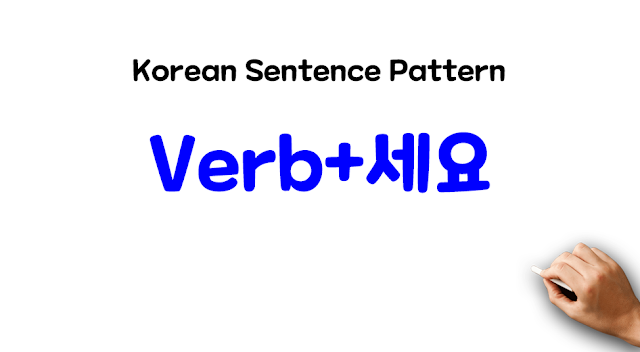Learn Korean: Verb + 세요
Let’s take a look at the Korean sentence pattern Verb + 세요. We use this to make a command in a very courteous way. Although we can make imperative sentences using the plain form (아요/어요/여요), this one is more polite and cordial. Use 세요 if the verb stem ends in a vowel and 으세요 if it ends in a consonant. Here’s how we say Close the door in different levels of speech: 문 닫아라 (low casual), 문 닫아 (casual), 문 닫아요 (polite), and 문 닫으세요 (high polite). We can make it much more polite by combining the main verb with 주다. 주다 means to give and it adds the nuance do something for me. In this case, 세요 is attached to 주다 as in 문 닫아 주세요. The main verb (닫다) is conjugated into its 어/여/여 form before adding 주다. Some verbs like 자다 (to sleep), 있다 (to have/stay), and 먹다 (to eat) have honorific forms. They are 주무시다, 계시다, and 드시다 respectively. When making a command, 세요 is automatically used minus the syllable 시. For example, we say 안녕히 주무세요 to say good night to our parents and 맛있게 드세요 to tell our visitors or customers to enjoy their meal. Apart from making commands, we can use 세요 to make high polite/formal statements and questions. Instead of 한국에 살아요 (I live in Korea), say 한국에 사세요. Instead of 시간 있어요? (Do you have time?), say 시간 있으세요?
마스크 끼세요.
Please wear a mask.
남자가 아니세요.
I am not a man.
술 마시세요?
Do you drink liquor?

